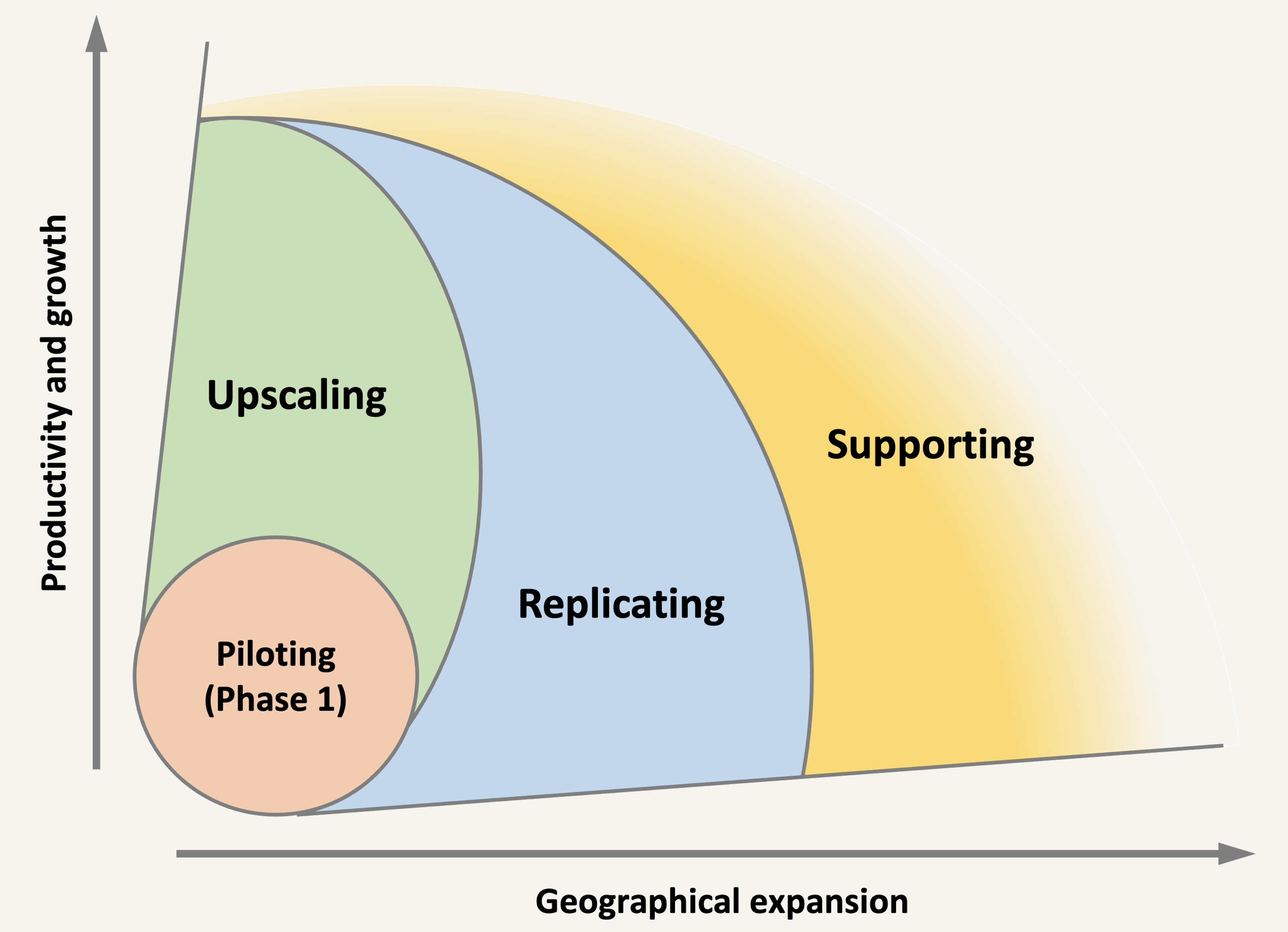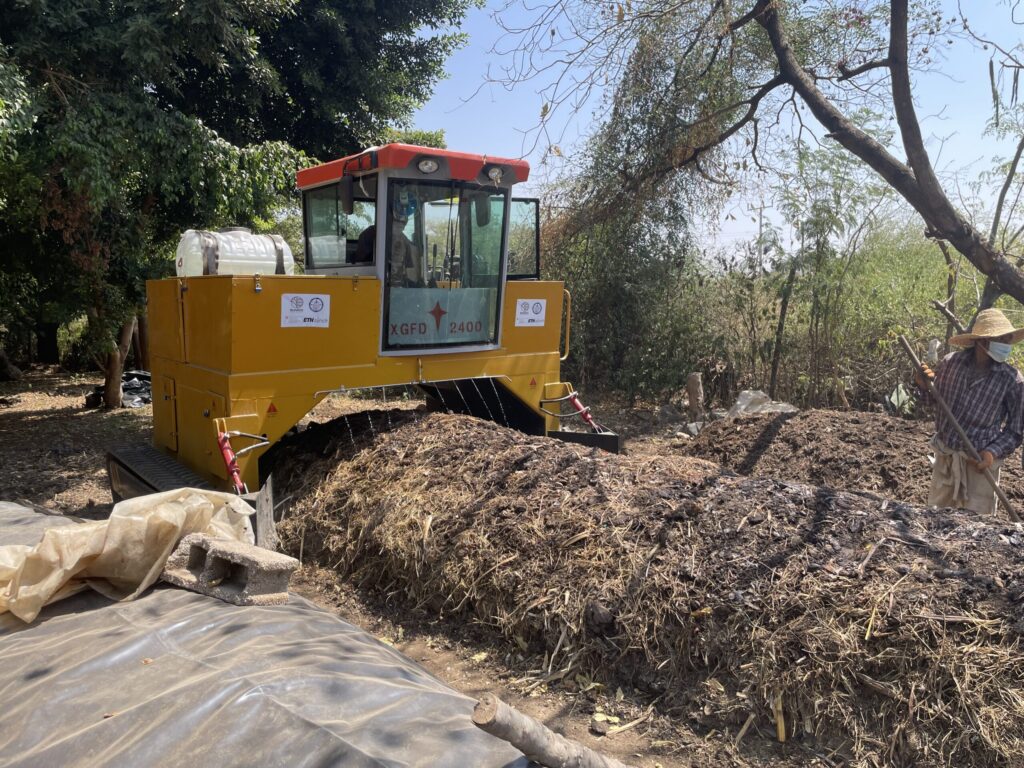The innovations piloted during the first project phase were, inter alia, selected according to their potential viability for scaling. The different innovations will have three different settings to allow an upscaling in capacity and space.
Upscaling innovations
We aim to upscale the most promising innovations identified in RUNRES Phase 1 (2019-2023), into Phase 2 (2023-2027). We will upscale circular-economy innovations in three different settings:
A. Upscaling: this setting will be the next step for existing consortia which we piloted in Phase 1, and which are already working on RUNRES innovations. In this setting, the existing innovations will continue to grow, aiming to reach a larger output with a strongly decreased intensity of financial contribution through the project.
B. Replicating: In this setting, most of the innovations will be replicated through other transdisciplinary consortia, i.e. implemented in other places by other actors. The development of these innovations is to be directly supported through technical backup and co-financing by the RUNRES core team. However, the project’s financial contribution for this setting will be significantly lower per unit of output compared to Phase 1, since the expertise has already been developed through the piloting.
C. Supporting: This last setting will take place in the form of indirect support to implement RUNRES innovations by other actors who have their own financial means for implementation. The actors we target are already active in organic waste recovery, but may be in a different area of the countries we focus on. The project will not directly financially support these innovations but will provide indirect support by making available its acquired knowledge in the successful implementation of the innovations.

Become a partner
While the initial focus is to be on upscaling the innovations from Phase 1 that have been evaluated as suitable for upscaling, we aim in parallel at replicating these innovations in different places with new actors. This will take place through public-private partnerships and through the co-development of business plans with the new actors, with the aim of leveraging financial resources from existing business development institutions.
While some innovations are to be upscaled through the private sector, others will require committed support from the public sector, for instance for organic-waste sorting and collection at a household level. We therefore aim at supporting any actors interested in recovering organic waste through the quality assurance capacity developed along with the project.
Through this upscaling, we aim to show that circular economy is a viable complement to existing food systems to increase agriculture productivity, while at the same time decreasing the amount of waste that is left untreated in urban centers.

Get support
Are you active, or are you planning to develop activities in the field of circular bio-economy? We can provide support to different degrees, based on the learnings of RUNRES phase 1:
- Agroecology
- Composting and co-composting
- Black Soldier Flies larvae production
- Cassava peels transformation into flour
- Banana-derived products
- Organic waste collection and sorting
Contact us if you aim making a change in this topic.

